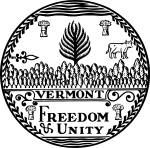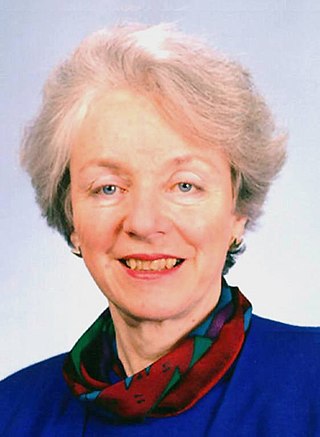
Madeleine Kunin is a Swiss-born American diplomat, author and politician. She served as the 77th governor of Vermont from 1985 until 1991, as a member of the Democratic Party. She also served as United States Ambassador to Switzerland from 1996 to 1999. She was Vermont's first and, to date, only female governor as well as the first Jewish governor of Vermont. She was also the first Jewish woman to be elected governor of a U.S. state. Kunin is currently a James Marsh Professor-at-Large at the University of Vermont.

Peter Plympton Smith is an American educator and politician who served as a member of the United States House of Representatives from the U.S. state of Vermont, the 76th lieutenant governor of Vermont, and an education administrator. He served as the founding president of the Community College of Vermont, the founding president of California State University, Monterey Bay, and as assistant director general for education of the United Nations Educational, Scientific, and Cultural Organization (UNESCO).

The 1990 Vermont gubernatorial election took place on November 6, 1990. Incumbent Democratic Governor Madeleine Kunin did not seek re-election. Former Governor Republican Richard Snelling defeated Democratic former State Senate President pro tempore Peter Welch in the general election. This would be the last Republican victory in a Vermont gubernatorial election until 2002.

The 1990 United States House of Representatives election in Vermont was held on Tuesday, November 6, 1990 to elect the U.S. representative from the state's at-large congressional district. The election coincided with the elections of other federal and state offices.

The 1998 Vermont gubernatorial election took place on November 3, 1998. Incumbent Democrat Howard Dean ran successfully for re-election to a fourth full term as Governor of Vermont, defeating Republican candidate Ruth Dwyer.
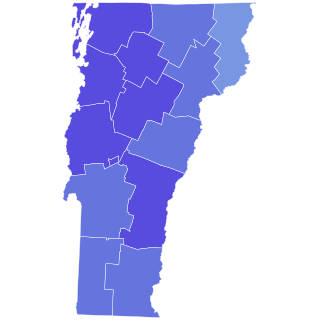
The 1996 Vermont gubernatorial election took place on November 5, 1996. Incumbent Democrat Howard Dean ran successfully for re-election to a third full term as Governor of Vermont, defeating Republican nominee John L. Gropper.
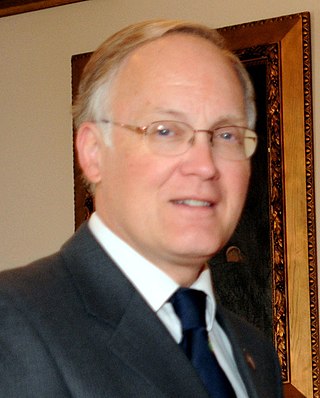
The 2002 Vermont gubernatorial election took place on November 5, 2002. Incumbent Democratic Governor Howard Dean did not run for re-election to a sixth full term as Governor of Vermont. Republican Jim Douglas defeated Democratic candidate Doug Racine and independent candidate Cornelius Hogan, among others, to succeed him. Since no candidate received a majority in the popular vote, Douglas was elected by the Vermont General Assembly per the state constitution.

The 1986 Vermont gubernatorial election took place on November 4, 1986. Incumbent Democrat Madeleine Kunin ran successfully for re-election to a second term as Governor of Vermont, defeating Republican candidate Peter Plympton Smith and independent candidate Bernie Sanders. Since no candidate won a majority of the popular vote, Kunin was elected by the Vermont General Assembly per the state constitution.
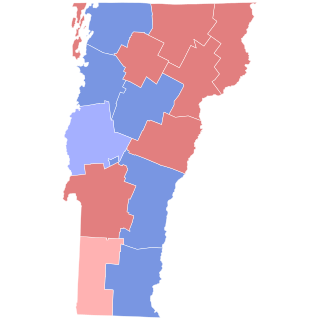
The 1984 Vermont gubernatorial election took place on November 6, 1984. Incumbent Republican Richard A. Snelling did not run for another term as Governor of Vermont. Democratic candidate Madeleine Kunin defeated Republican candidate John J. Easton Jr. to succeed him. Kunin's win coincided with the presidential election, which saw Republican Ronald Reagan win Vermont with nearly 58% of the vote.

The 1982 Vermont gubernatorial election took place on November 2, 1982. Incumbent Republican Richard A. Snelling ran successfully for a fourth term as Governor of Vermont, defeating Democratic candidate Madeleine Kunin.

The 1976 Vermont gubernatorial election took place on November 2, 1976. Incumbent Democrat Thomas P. Salmon did not seek another term as Governor of Vermont, instead running for United States Senate. Republican candidate Richard A. Snelling won the election, defeating Democratic candidate Stella B. Hackel and Liberty Union candidate Bernie Sanders.
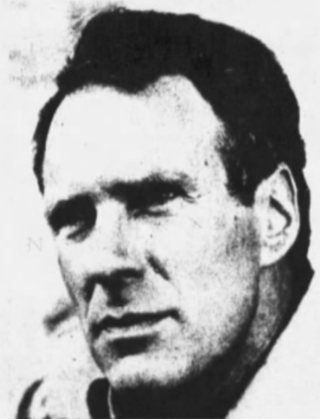
John J. Easton Jr. is an American attorney who served as Vermont Attorney General and in several senior positions with the United States Department of Energy.

The 1988 United States Senate election in Vermont took place on November 8, 1988. Incumbent Republican Robert Stafford did not run for re-election to another term in the United States Senate. Republican candidate Jim Jeffords defeated Democratic candidate Bill Gray to succeed him.

The 1976 United States Senate election in Vermont took place on November 2, 1976. Incumbent Republican Robert Stafford successfully ran for re-election to another term in the United States Senate, defeating Democratic candidate Governor Thomas P. Salmon.

The 1970 United States Senate election in Vermont took place on November 3, 1970. Incumbent Republican Winston L. Prouty successfully ran for re-election to third term in the United States Senate, defeating Former Democratic Governor Philip H. Hoff.
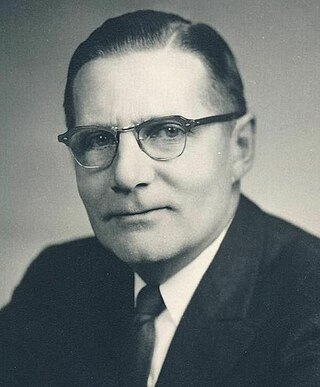
The 1958 United States Senate election in Vermont took place on November 4, 1958. Incumbent Republican Ralph Flanders did not run for re-election to another term in the United States Senate. Republican candidate Winston L. Prouty defeated Democratic candidate Frederick J. Fayette to succeed him.

The 1931 United States Senate special election in Vermont took place on March 31, 1931. Republican Warren Austin was elected to the United States Senate to serve the remainder of the deceased Frank L. Greene's term, defeating Democratic candidate Stephen M. Driscoll. Austin replaced Frank C. Partridge, who was appointed to fill the seat until a special election could be held and was defeated in the special primary.

The 1940 United States Senate special election in Vermont took place on November 5, 1940. Republican George Aiken was elected to the United States Senate to serve the remainder of the deceased Ernest W. Gibson, Sr.'s term, defeating Democratic candidate Herbert B. Comings. Aiken replaced Gibson's son, Ernest W. Gibson, Jr., who was appointed to fill the seat until a special election could be held.

The 1988 United States House of Representatives election in Vermont was held on November 8, 1988. Republican nominee Peter Plympton Smith defeated independent candidate Bernie Sanders and Democratic nominee Paul N. Poirier.

The 2020 Vermont gubernatorial election was held on November 3, 2020, to elect the Governor of Vermont. As Vermont does not impose term limits upon its governors, incumbent Republican Governor Phil Scott was eligible to run for reelection to a third two-year term in office. On November 18, 2019, he confirmed that he was running for reelection, but did not yet publicly announce his campaign. On May 28, 2020, he officially announced his candidacy but stated that he would not campaign, maintain a campaign staff, or fundraise because of the state of emergency due to the COVID-19 pandemic in Vermont. The primary was held on August 11. Scott won re-election to a third term in a landslide, defeating Progressive and Democratic nominee, Lieutenant Governor David Zuckerman.
